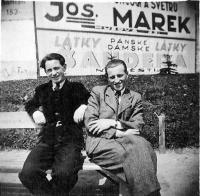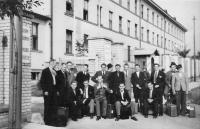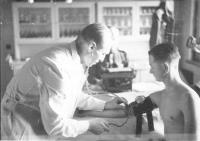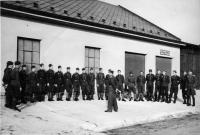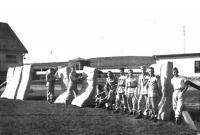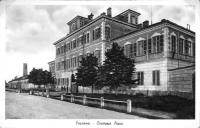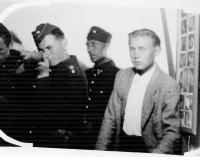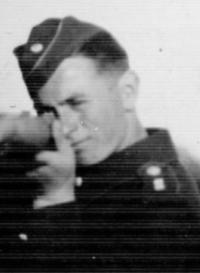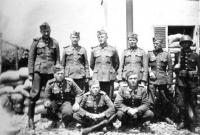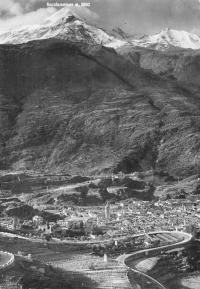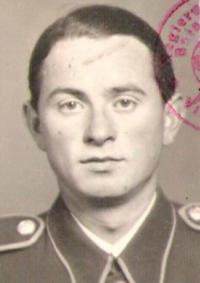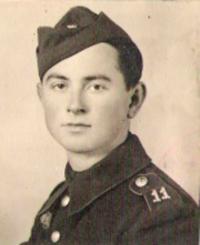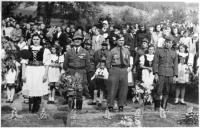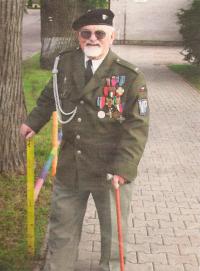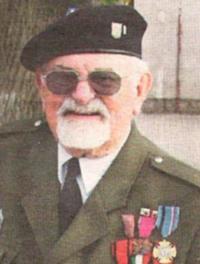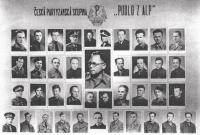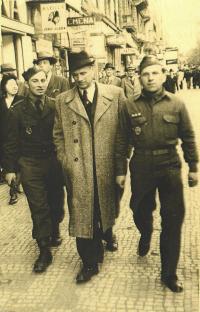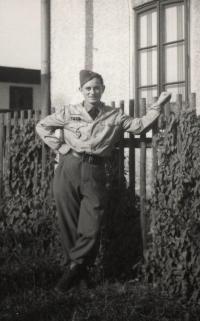From the government forces to the Italian partisans, and back again

Stáhnout obrázek
Master Sergeant (ret.) Dalibor Knejfl was born on 14 January 1925 in Lázně Bělohrad in what was then Czechoslovakia. After attending primary school and completing vocational training in textiles in Hořice, he was assigned to forced labour at the Junkers factory in Hradec Králové. However, in autumn 1943 he followed the advice of his cousin Karel Jurajda and applied to the Government Forces of the Protectorate of Bohemia and Moravia; he was assigned to the 11th Battalion in Rychnov nad Kněžnou. He underwent military training, and together with other government units he was sent to guard railway lines in Italy on 24 May 1944. There, he and other government soldiers managed to desert and join the Italian partisans on 21 June 1944. The witness served with the groups of Carlo Carli and Pudlo and later with the 41st and 43rd Garibaldi Partisan Brigades. On 6 December 1944 he was captured by German soldiers, and after being held in the prisons in Turin, Verona, and Peschiera, he was returned to the Government Forces, although this time as part of the labour corps. Interrogations had not been able to prove that the soldiers had intentionally deserted to the partisans, and the government soldiers were thus considered POWs. Dalibor Knejfl remained in Italy until his liberation by the American army on 28 April 1945. He returned to Czechoslovakia when the war ended. After the war he served in the army and was stationed in Chlumec nad Cidlinou, Mladá Boleslav, and Turnov; he worked as a shop assistant, as a records clerk for porcelain factories, at a textile mill, at a paper mill, at Tesla, and finally as a fire extinguisher inspector. Dalibor Knejfl married twice. He now lives in the village of Dolní Dobrouč near Lanškroun.
